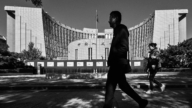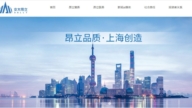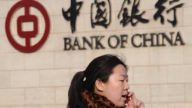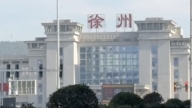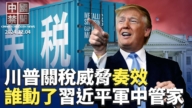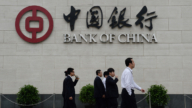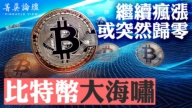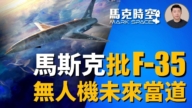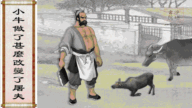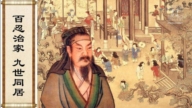【新唐人2011年11月15日讯】在夏威夷举行的亚太经合组织APEC峰会上,由美国主导的在亚太建立自由贸易区的构想取得进展。美国总统奥巴马与中、俄领导人会谈中,人民币汇率、伊朗核问题成为争议和分歧的焦点。与此同时,南中国海争端则是亚太各方角力和交锋的热点。
亚太9个国家11月12号达成了《跨太平洋经济战略伙伴关系协议》,简称TPP。这项协议起初只包括智利、新西兰、文莱和新加坡,后来,美国、澳大利亚、马来西亚、秘鲁和越南也加入其中。日本也表示有兴趣加入,但依然面临国内,特别是农业部门的阻力。
中国没有收到加入TPP的邀请。北京一方面强化中国与东盟10国的自由贸易区,加快推进有中日韩参加的“10+3”东亚自贸区,抗衡TPP;另一方面,《新华社》报导,美国力推TPP扩大,是为了提升在亚太主导权。
香港《苹果日报》发表评论员林和立的文章说,中美角力正从幕后博弈走向正面交锋。奥巴马除了宣示“美国重返亚洲”外,还加紧部署被北京定性为“反华阴谋”的包围圈。
《中国事务》主编伍凡表达了他对TPP的看法。
伍凡:“现在,中共已经控制了一个在东南亚‘10+6’或者‘10+3’、‘10+1’,其中中共参加进去了,和东南亚10国建立了一个自由贸易区,他们不邀请美国。美国就自己做,美国就把里面的人也拉出来,同时也吸收更多的人进来。所以,这个变成两股阵营在对垒。”
奥巴马在与中共国家主席胡锦涛会谈中表示,美国公众和商界对中国经济改革的缓慢“越来越不耐烦、越来越失望”,敦促中国允许人民币升值、“遵守全球贸易法则”。
经济政治评论家草庵居士表示,既然中国加入了WTO,就必须要采取自由贸易的手段。
草庵居士:“美国GDP当中有将近50%是人工的工资,而中国只有在8%左右,甚至还低,造成廉价的优势。美国提出来要求中国采取自由的外汇制度,由市场来决定,人民币升值是一种可能,也有人民币贬值的一种可能。”
奥巴马在与俄罗斯总统梅德韦杰夫会谈中,讨论了俄国加入WTO、叙利亚局势以及在欧洲反导系统问题上的分歧等一系列议题,尤其是伊朗的核项目。
伍凡:“因为俄国长期是伊朗的盟友,还有地缘政治,伊朗又是支持叙利亚,来打击以色列,伊朗是叙利亚的后台,那么俄国就支持叙利亚。所以这个问题,俄国和伊朗站在一起,跟美国、以色列、欧盟对抗。”
国际原子能机构8号发布报告指出,有可信证据显示,伊朗利用核计划,研究为弹道导弹装载核弹头。美国和欧盟呼吁对伊朗采取进一步制裁,但是中俄不支持。
伍凡:“中国是长期的支持伊朗,利用伊朗来对抗美国,再加上,中国是伊朗的很大的石油输出国的一个买主,中国15%石油是从伊朗进口。所以,它无论在联合国安理会上,无论核武器设备装置供应上面,以及武器输出,都给了伊朗大力的支持。”
APEC峰会后,奥巴马将访问印尼与澳洲。《苹果日报》指出,美国一直在背后支撑包括越南、菲律宾、印尼等与中国在南中国海有主权纠纷的国家,并怂恿日本与印度加入南中国海的战圈。例如印度国营石油公司准备在西沙群岛与越南合作开采油气。
伍凡:“恐怕美国这次要回到亚太去的话,都给这些国家撑腰,来跟中国对抗,目地就是争这个资源。所以这个资源怎么分配,怎么来争夺,这是一个长时间的问题,恐怕不是一下能解决,很有可能会走上军事冲突。”
《华尔街日报》说,欧巴马寻求扩大美国在亚太地区的影响力,难免与中国短兵相接。《德国之声》则指出,中国和美国在亚洲地区就“领导权”的角力越来越激烈。
新唐人记者周玉林、李元翰、孙宁采访报导。
US-China Asia-Pacific Leadership Crisis
The idea of establishing a US-led Free Trade Area
in the Asia-Pacific region, was further advanced during the recent APEC summit held in Hawaii.
In respective talks between U.S. President Barack Obama
and leaders of Chinese Communist Party (CCP), and Russia,
over the controversial and divergent matters, the main focus
was on China’s RMB exchange rate, the Iranian nuclear issue,
and the South China Sea disputes, all heated issues
facing the Asia-Pacific nations.
On November 12, nine Asian countries signed
the Trans-Pacific Partnership Agreement (TPP).
The agreement initially covered only Chile, New Zealand,
Brunei, and Singapore.
Later, the United States, Australia, Malaysia, Peru,
and Vietnam joined in.
Japan also expressed interest to join, but still faces
domestic resistance, especially from its Agricultural Minister.
The CCP authorities did not receive
a TPP membership invitation.
In order to compete with the TPP, the Beijing regime has
strengthened the development of the ASEAN free trade zone,
and accelerated its efforts to form a
10 +3 East Asian Free Trade Area, which would include China, Japan, and South Korea.
Meanwhile, the CCP mouthpiece, Xinhua News Agency,
alleged that the United States expanded the TPP with an aim of promoting its dominance in the Asia-Pacific region.
Hong Kong’s Apple Daily commentator, Willy Lam, said
in his article that the wrestling match between China and the U.S. is stepping from behind-the-scenes to the stage.
Besides declaring that the U.S. will make its presence known
in Asia, President Obama stepped up his efforts to dispel a “conspiracy" label that the CCP slapped on to the United States.
China Affairs chief editor, Wu Fan, comments on the TPP.
Wu Fan: “Now, the CCP regime has joined
the Southeast Asian ‘10+6’ or ‘10 +3’, or ‘10 +1.’
It set up a free trade zone with 10 southeastern Asian nations,
without inviting the United States.
Then the United States set up their own free trade zone and,
attracting many nations.
So it has turned into a confrontation between two camps."
Obama said during his talks with China’s President Hu Jintao,
that the U.S. public and business sector has turned out to
be “more and more impatient, more and more disappointed"
with China’s slow economic reforms.
They urged China to increase the value of the RMB
and “to comply with global trade rules."
Economic and political commentator, Caoan Jushi,
said that since China has joined the World Trade Organization (WTO), it should adopt free trade approaches.
Caoan Jushi: “Nearly 50% of the U.S. gross domestic product
comes from labor wages, while China’s figure is only about 8 percent or even lower, resulting in its low-cost advantage.
The United States is asking China to accept Western society’s
free foreign exchange system,
that is, currency dominated by the market.
This will allow the RMB’s value to freely float up or down. ”
Obama discussed with Russia’s President Dmitry Medvedev
a series of issues, ranging from Russia’s membership in WTO,
to the situation in Syria and the differing of opinions over
Europe’s anti-missile system, especially Iran’s nuclear program.
Wu Fan: “Russia is Iran’s long-term military and
geopolitical ally.
Iran is Syria’s hidden supporter in a possible future
confrontation with Israel. So Russia stands by Syria.
In other words, on this issue, Russia and Iran stand together to
confront the United States, Israel, and the EU."
On November 8, International Atomic Energy Agency
released a report, saying that compelling evidence shows
that Iran is developing nuclear missile warheads
under the cover of its nuclear program.
The United States and EU have been urging nations
to initiate further sanctions against Iran,
but CCP regime and Russia failed to support the sanctions.
Wu Fan: “China has long supported Iran, using Iran to
confront the United States.
Plus China is Iran’s a largest oil buyer,
with 15 percent of its oil imports coming from Iran.
The CCP gave Iran its support at the UN Security Council,
and sided with them regarding nuclear weapons supplies and arms exports."
Obama will visit Indonesia and Australia after
the APEC summit.
Apple Daily claimed that the United States. has been backing
up Vietnam, the Philippines, Indonesia,
and other nations that have territorial disputes with China
over the South China Sea.
The United States. also persuaded Japan and India to
join the South China Sea disputes.
For example, Indian’s state-run oil company is ready to
cooperate with Vietnam in the Paracel Islands for oil and gas exploration.
Wu Fan: “I am afraid that after the United State’s returning to
the Asia-Pacific region, it will give support to these countries to resist the CCP regime.
The aim is to fight for the resources located there.
So how to allocate resources and how to acquire each share,
have been longstanding issues.
It might not be resolved right away
and will probably evolve into a military conflict."
Wall Street Journal comments that if Obama seeks to
expand U.S. influence in the Asia Pacific region, it will inevitably fight hand-to-hand combat with China.
Voice of Germany said that the struggle for leadership
between China and the United States over the Asia Pacific region, has been rapidly intensifying.
NTD reporters Zhou Yulin, Li Yuanhan and Sun Ning




